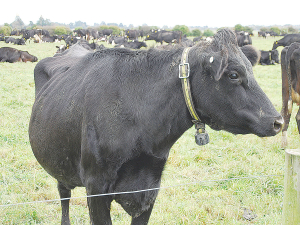Low-footprint feed drives high-profit, low-emissions dairy
The key to a dairy system that generates high profit with a low emissions intensity is using low footprint feed, says Fonterra program manager on-farm excellence, Louise Cook.
 Lincoln University Dairy Farm is expanding research to include variable milking frequency, moving the forage base to include plantain, and replacement rate reduction.
Lincoln University Dairy Farm is expanding research to include variable milking frequency, moving the forage base to include plantain, and replacement rate reduction.
Three new farming systems are being implemented to expand Lincoln University Dairy Farm’s (LUDF) focus and extend its outlook through to 2030.
The research is on variable milking frequency, moving the forage base to include plantain, and replacement rate reduction.
The South Island Dairying Demonstration Centre (SIDDC) has revised LUDF farm systems to more effectively contribute to New Zealand dairying and the wider primary sector.
Lincoln University deputy vicechancellor Professor Grant Edwards says SIDDC is committed to taking a leadership role in dairy farming in New Zealand through LUDF.
“It’s important that the partnership regularly reassesses and revisits the farm’s systems to consolidate its position at the vanguard of current and future scenarios.”
DairyNZ general manager for new systems and competitiveness, Dr David McCall, says New Zealand’s dairy sector is committed to remaining the most sustainable milk producers.
“As a SIDDC partner, we support LUDF implementing new farm systems. It is also exciting to see the adoption of variable milking frequencies, following DairyNZ’s three-year flexible milking project which highlighted the opportunities this system presents farmers.”
The variable milking programme will be implemented in the 2021/22 season and involves moving from the traditional twice-a-day milking to a more flexible milking regime with ten milkings over the course of a week.
SIDDC demonstration manager Jeremy Savage says there are many benefits to variable milking.
“A variable milking programme will not only improve cow welfare through less lameness, better overall health condition and enhanced vigour, but will also lift the safety and wellbeing of staff, with kinder rosters, fewer early starts and more condensed workloads allowing for better work/life balance,” he says.
Additionally, Savage says that starting in October 2021, LUDF will plant at least 10% of the farm into plantain each year.
“This is a forage that may significantly reduce nitrogen leaching. With cow intakes of 30% plantain or higher we anticipate LUDF will achieve further improvements to its nitrogen leaching results,” he says.
He says the potential benefits of reducing on-farm nitrogen leaching by up to 20% by managing cows’ diets are ‘obvious’ and ‘compelling’.
In introducing plantain, LUDF is applying research from the Forages for Reduced Nitrate Leaching (FRNL) project, a six-year cross-sector programme that looked at ways in which forages can reduce nitrate leaching.
The World Wide Sires National All Day Breeds Best Youth Camp Best All Rounder plaudit has become family affair, with 2026 Paramount Cup winner Holly Williams following in her sister Zara's footsteps.
DairyNZ is giving New Zealand farmers a unique opportunity to gain hands-on governance and leadership experience within the dairy sector.
Herd improvement company LIC has posted a 5.2% lift in half-year revenue, thanks to increasing demand for genetics.
According to the latest Fresh Produce Trend Report from United Fresh, 2026 will be a year where fruit and vegetables are shaped by cost pressures, rapid digital adoption, and a renewed focus on wellbeing at home.
The Roar is a highlight of the game hunting calendar in New Zealand, with thousands of hunters set to head for the hills to hunt male stags during March and April.
OPINION: The past few weeks have been tough on farms across the North Island: floods and storms have caused damage and disruption to families and businesses.
OPINION: Fonterra may be on the verge of selling its consumer business in New Zealand, but the co-operative is not…
OPINION: What does the birth rate in China have to do with stock trading? Just ask a2 Milk Company.